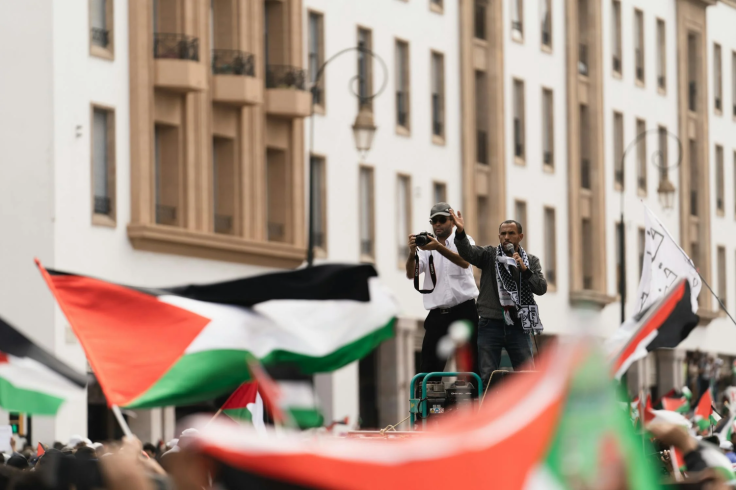On Wednesday, tensions flared at several universities across the United States as pro-Palestine student protesters clashed with police and campus administrators.
The most notable incident occurred at the University of Texas at Austin, where authorities confronted demonstrators, leading to multiple arrests. Similar confrontations and crackdowns on protests were reported at other institutions, including Brown University and the University of Southern California.

University of Texas at Austin: A Forceful Response
At the University of Texas at Austin, the police response to pro-Palestine student protesters was particularly forceful. According to The Austin-American Statesman, state and university police, some in riot gear, engaged with rally goers on horseback, bikes, motorcycles, cars, and on foot. They warned protesters to disperse or face arrest under the penal code.
Eyewitness accounts described police arresting protesters at the front of the group seemingly indiscriminately. Police also pushed back protesters, at one point knocking over a tent filled with food and water. By Wednesday evening, at least 30 protesters had been arrested during what was reportedly a peaceful protest.
University Administrators' Responses
Prior to the clashes, the dean of students at the University of Texas at Austin had sent a letter to the Palestine Solidarity Committee, the group behind the demonstration, stating that the protest was unauthorized. The letter also expressed the university's stance against allowing the campus to be "taken" and its mission to be derailed, citing concerns similar actions had caused elsewhere.
The protest was planned by the Palestine Solidarity Committee in solidarity with students at other universities. These students are calling on administrators to divest from companies that support Israel. However, the university deemed the protest unauthorized and took a strong stance against it.
Free Speech Concerns and Political Reactions
Free speech advocates have criticized the police presence and actions taken during the demonstration. Kristen Shahverdian, from PEN America, expressed alarm over the escalation, especially based on the behavior of students at other campuses. She emphasized the need to protect even contentious student protests, calling the police intervention counterproductive.
On the other hand, Texas Senator Ted Cruz and Governor Greg Abbott supported the police response, with Cruz stating he was "glad" that law enforcement took the situation seriously, and Abbott advocating for the expulsion of students participating in what he called "hate-filled, antisemitic protests."
Clashes at Other Universities
The incident at the University of Texas at Austin was not isolated. Similar clashes and crackdowns on protests were reported at other universities. At Brown University, for example, between 75 and 90 students erected an encampment that violated university policy. The university swiftly informed the participants that they would face conduct proceedings.
At Emerson College in Boston, President Jay Bernhardt warned protesters of imminent law enforcement action for violating city code. He also mentioned credible reports of targeted harassment and intimidation of Jewish supporters of Israel and others passing through the area.
Further west, at the University of Southern California, pro-Palestine protesters set up an encampment at Alumni Park, where the university's commencement ceremony is scheduled. The university closed the campus after protesters refused to remove their tents, citing safety concerns for officers and the campus community.
The clashes between pro-Palestine student protesters and authorities highlight the ongoing tensions and complexities surrounding the Israeli-Palestinian conflict. The incidents also raise important questions about the limits of free speech on university campuses and the appropriate response of law enforcement and administrators to student protests. As these issues continue to unfold, they underscore the need for dialogue, understanding, and peaceful resolution.
© 2026 University Herald, All rights reserved. Do not reproduce without permission.








